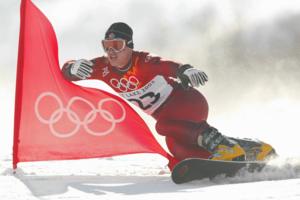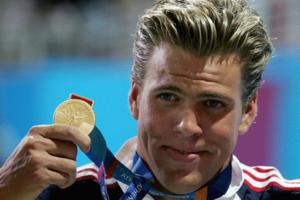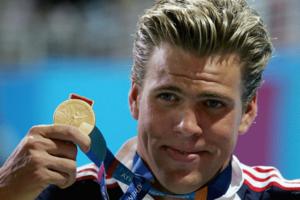Sports
/ArcaMax

Rose Bowl to host 2028 Olympic soccer finals, BMO Stadium to host new sports
LOS ANGELES — The city of Pasadena announced the Rose Bowl is hosting men's and women's semifinal and final soccer matches as the 2028 Olympic venues list continues to take shape ahead of the Games.
Pasadena's agreement with the LA28 organizing committee was announced on the same day the city of Los Angeles and LA28 worked through complex ...Read more

Canadian former Olympic snowboarder accused of ordering killings added to FBI's Most Wanted list
A Canadian former Olympic snowboarder who allegedly became the head of a transnational drug organization and ordered numerous killings was added to the FBI’s “Ten Most Wanted Fugitives” list Thursday.
Federal investigators announced at a news conference in Los Angeles that Ryan Wedding, who participated in the 2002 Winter Olympics in Salt...Read more

Olympian Gary Hall Jr. will receive 10 replacement medals after Palisades home burned down
When Gary Hall Jr. saw the flames of the Palisades fire rapidly approaching, he grabbed his dog Puddle, a few family mementos, his insulin and left everything else behind — including five gold, three silver and two bronze Olympic medals that he had tucked away in a closet.
When he fled his home on Lachman Lane Tuesday morning, Jan. 7, nearby ...Read more

Gary Hall won 10 Olympic medals in the water. Then he lost them in the Palisades fire.
LOS ANGELES — Gary Hall Jr. didn't think anything of the small, off-colored cloud he saw from inside the kitchen of his Pacific Palisades home Tuesday morning.
Then he noticed a narrow plume of smoke in the sky that doubled in size within a minute.
And he smelled smoke.
By the time he saw flames coming out of houses uphill in the distance, ...Read more
Popular Stories
- Rose Bowl to host 2028 Olympic soccer finals, BMO Stadium to host new sports
- Gary Hall won 10 Olympic medals in the water. Then he lost them in the Palisades fire.
- Canadian former Olympic snowboarder accused of ordering killings added to FBI's Most Wanted list
- Olympian Gary Hall Jr. will receive 10 replacement medals after Palisades home burned down





